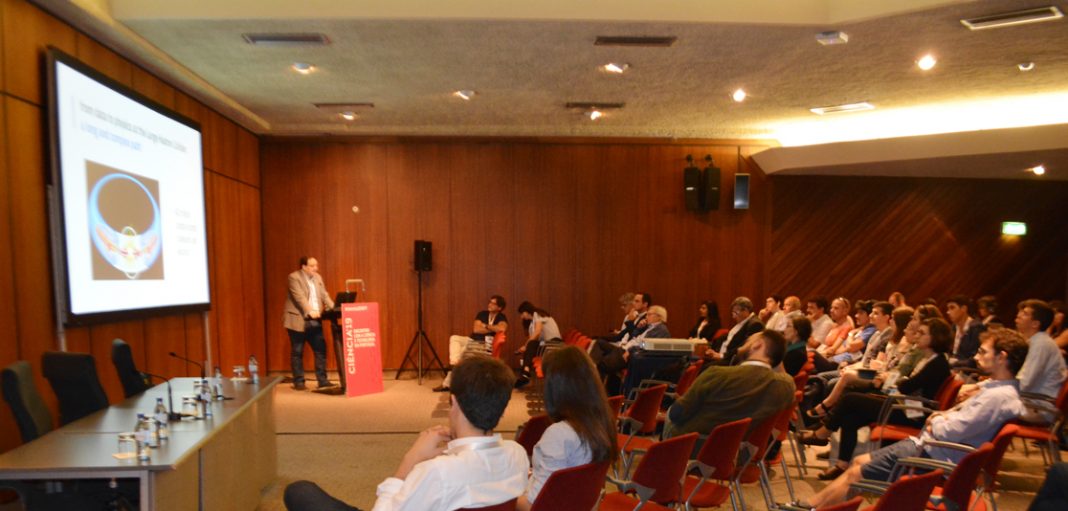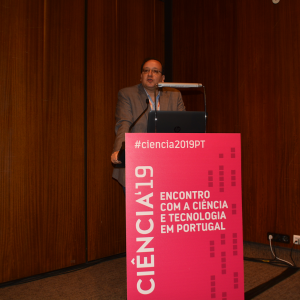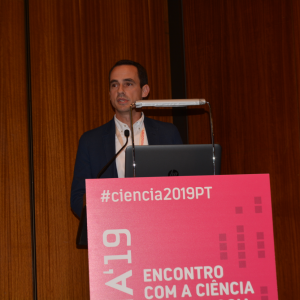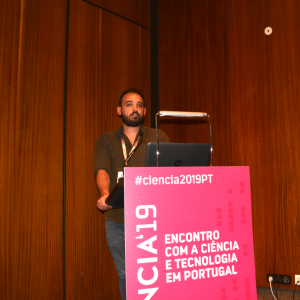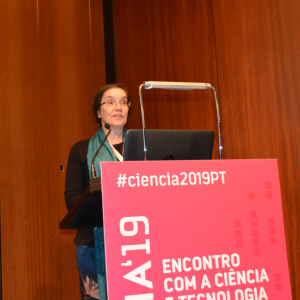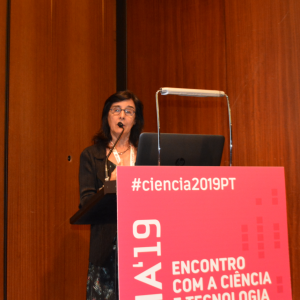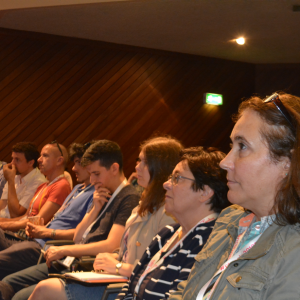The UT Austin Portugal Program hosted a workshop at Ciência 2019, inviting key speakers involved in the five strategic areas of the Program.
Between July 8 and 10, the Lisbon Congress Center was, once again, the stage for another edition of the annual meeting of Portuguese researchers, Ciência 2019. The event aims at promoting a broad debate on some of the main topics and challenges of the scientific agenda beyond the world of research, looking to stimulate interaction between researchers, the business sector and the general public.
UT Austin Portugal was invited, alongside all the international partnerships, to host a workshop. “Enhancing international Collaboration in R&D to address major societal challenges” was the topic that brought together faculty members, researchers and entrepreneurs, within the scope of the Program, on July 8.
The opening session featured an institutional video, exclusively released at the event.
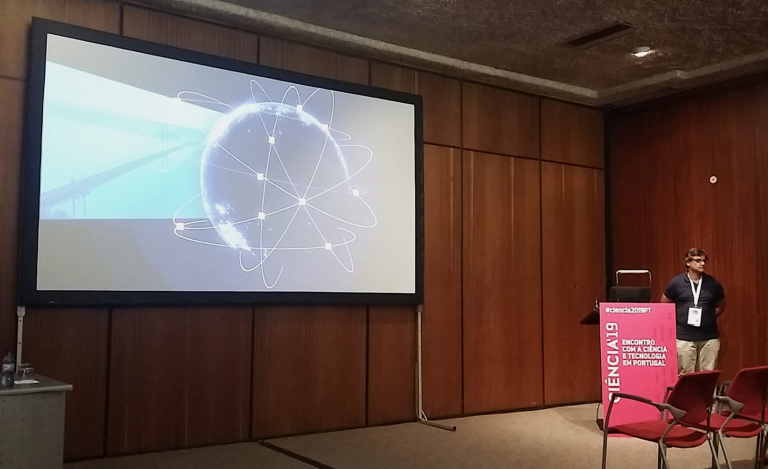
Nuno Castro, Professor at the School of Sciences at the University of Minho and Director of Laboratory of Instrumentation and Experimental Particle Physics (LIP), commenced the interventions discussing “Big Data and Machine Learning in High Energy Physics”, explaining the work conducted at LIP and its innovative methods through the usage of advanced computing techniques. “The key is to be able to choose the right technique to the right problem”, he stated. Nuno Castro proceed to explain current work being developed at LIP.
On “Space Assets: International synergies for resilient communities and ecosystem”, Vasco Mantas, Biologist at the University of Coimbra, talked about the ongoing research on the study of the ecosystem and the development of methodologies for satellite data analysis, climate analysis, in the University of Coimbra and through projects FOCUS (Horizon 2020). “Programs like UT Austin Portugal can really help us to establish transatlantic partnerships that enable us to get the resources, the exchange of knowledge and the experience that allows us to continue to explore our world and beyond, in a joint and sustainable way”, he concluded.
Industrial affiliate Graphenest was represented by COO Bruno Figueiredo, who presented the company and its graphene-based solutions. “Graphene was isolated 15 years ago and since then we unleashed a promise of a stronger and lighter conductive property”, Bruno Figueiredo starts. Talking about the properties of graphene, Bruno Figueiredo discussed some of the next steps for the company and referred the partnership with the UT Austin Portugal Program, INL and University of Minho as an opportunity to find faster solutions to better results.
Maria Filomena Botelho, Full Professor at the Faculty of Medicine in the University of Coimbra, presented “Radiation Effects: Physical and Biological Modelling in Cancer”. Some of her main topics of research work are biophysics of ionizing radiation, which includes molecular imaging, radiotherapy and the theranostic use of radiation and its effects. During her presentation, Maria Filomena Botelho, who collaborates with the Coimbra Institute for Clinical and Biomedical Research (ICBR), highlighted how radium-223 is uptaken by malignant cancer cells, representing an important addition to the cancer treatment landscape and a steppingstone to a precision medicine approach. Botelho also stressed the importance of adequating survival models from which clinical doses are defined.
Last but not least, Teresa Mendes, one of the area directors of Technology Innovation and Entrepreneurship (UT Austin Portugal), explained the work conducted in the Program, within in the scope of UTEN, and how the many entrepreneurial efforts of the partnership helped setting strong collaborations between Portugal and UT Austin, and to massively grow various start-ups and spin-offs. “The Program contributed towards the achievement of financial success of many Portuguese start-ups and to the creation of direct and indirect employment in Portugal.” Training, mentoring, scouting and other activities were introduced as key aspects of the Program that helped raise the international profile of the participating companies and pushed many entrepreneurs to create new innovative ventures.
Rui Oliveira, National Co-Director of the UT Austin Portugal Program closed the session providing a broad summary of the various interventions. One might think that “the areas don’t necessarily relate with each other… but they actually do. If you think about Advanced Computing – this is a transversal area that ends up connecting with the other areas. And this is very true for the other areas”, he explains. That is why it’s so important to understand existing competences and skills and that’s where the UT Austin Portugal Program can make a difference – by helping researchers leverage on knowledge and thus enhancing results, “taking the collaborations efforts, the research and innovation efforts to the next level”, he adds.
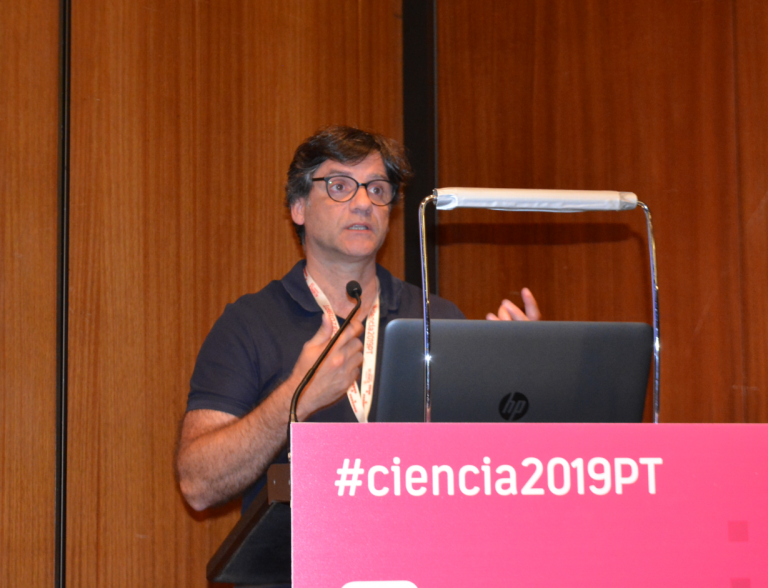
Ciência 2019 had the intervention of António Costa, Portuguese Prime-Minister, Manuel Heitor, Minister of Science, Technology and Higher Education, Helena Pereira, President of FCT and Carlos Moedas, Europe Commissioner for Research, Science and Innovation, among other relevant players in the field of Science and Research.
The event was promoted by FCT in collaboration with the National Agency for Scientific and Technological Culture – Ciência Viva, and the Parliamentary Commission of Education and Science, and has the institutional support of the Government through the Ministery of Science, Technology and Higher Education.

